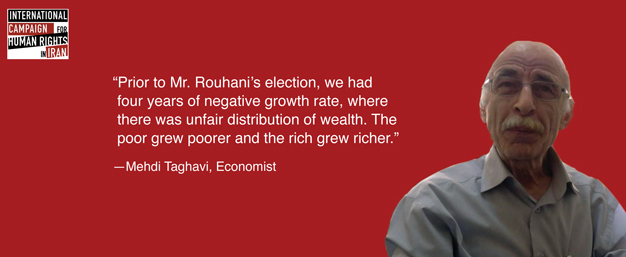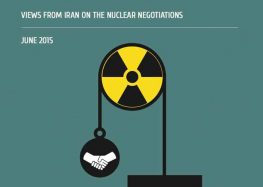Post-deal expectations: hopes and serious concerns

The respondents in this study overwhelmingly cited economic recovery and a loosening of restrictions on political, civil, social, and cultural freedoms as the domestic priorities for Iran following a nuclear deal. As former Member of Parliament Ahmad Shirzad put it in a remark that was echoed by many other interviewees, “Rouhani must bring his focus home and pay attention to domestic issues.”
Download the report here.
For almost all of the interviewees, an agreement was considered a necessary even if not sufficient condition for addressing any of these priorities.
However, the interviewees were split regarding those who expected to actually see gains in the economy or in political and social rights in the country if a settlement is reached, and those who expressed skepticism that there would actually be any meaningful improvements in these areas in a post-deal environment.
Regarding economic benefits, 71 percent of respondents stated there would be tangible gains from an end to sanctions. However, 20 percent of these individuals felt these gains could be largely squandered due to continued economic mismanagement, or lost to the vast majority of Iranians as they would disproportionately—if not exclusively—benefit the upper strata of society and those connected to centers of power. Respondents frequently cited corruption and the opaque nature of political and economic decision-making in Iran in this context. As one respondent put it, “the poor would get poorer and the rich would get richer.”
A significant number, 25 percent of the respondents, asserted there would be no economic impact, and that in fact, there is a potential for a worsening of economic conditions post-deal. This was attributed to a belief that the Rouhani government does not have the economic competence or managerial skills to institute a economic program that would translate the lifting of sanctions into meaningful economic improvements, or that the administration does not have the governing authority and thus ability to confront rival centers of power that have benefitted from the current economic structures.
With regards to civil, political, and cultural freedoms, 61 percent of the respondents believed that achieving a negotiated settlement to the nuclear conflict should facilitate progress toward greater rights and liberties. They noted that the nation’s attention, previously monopolized by the negotiations, could now turn to critical domestic issues, among them, the state of basic freedoms in Iran.
However, 36 percent of the interviewees believed Rouhani did not have the ability to achieve progress in these areas or directly questioned Rouhani’s willingness to push forward with meaningful changes in the state of basic rights and freedoms in Iran. They frequently noted his lack of authority over the legislative and judicial branches of government in Iran in this regard, as well as the ultimate authority of Iran’s Supreme Leader, Ali Khamenei. They also noted with palpable frustration his inaction in areas over the last two years in which he does have direct authority.

